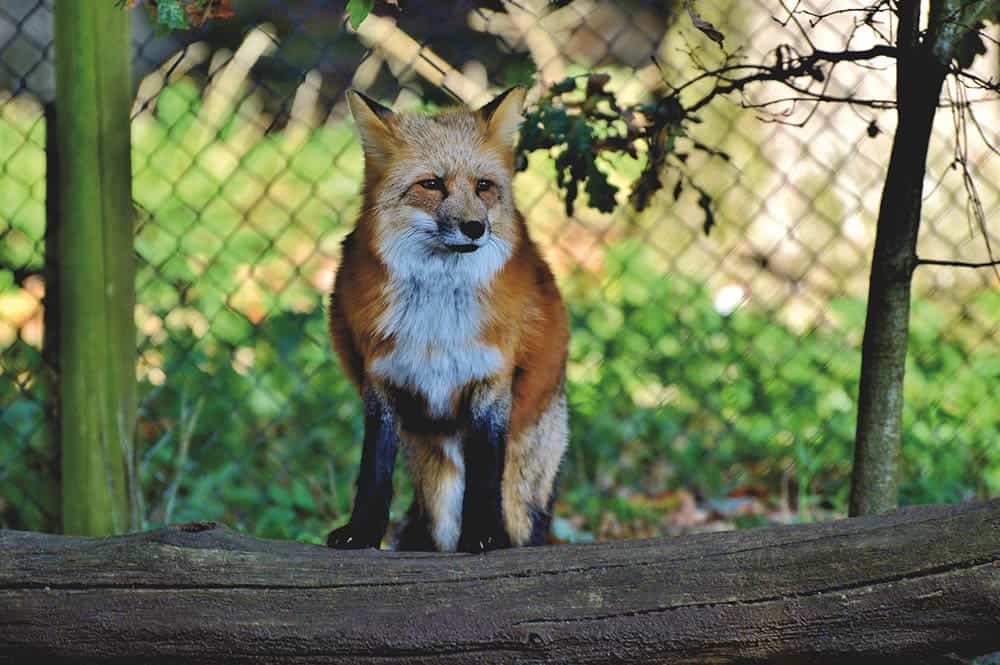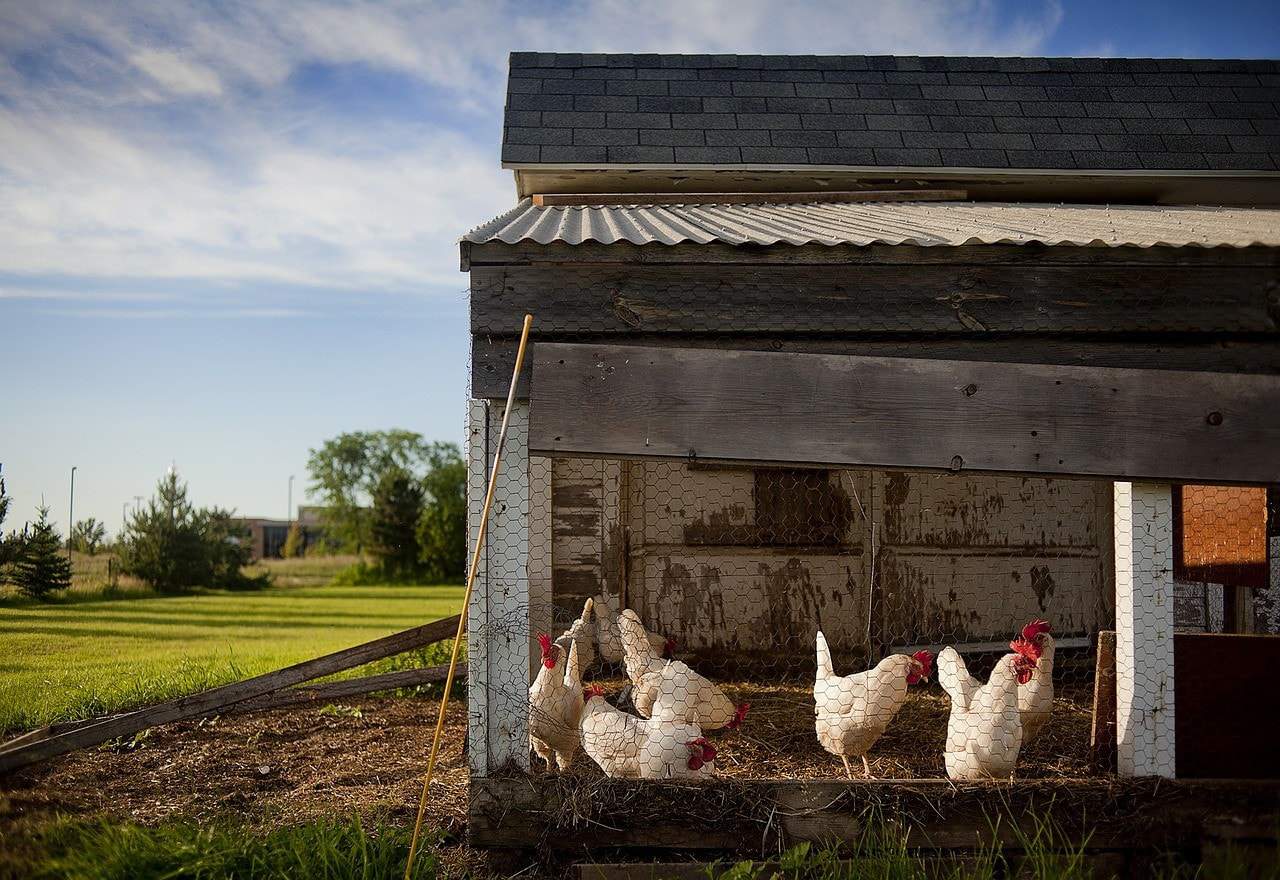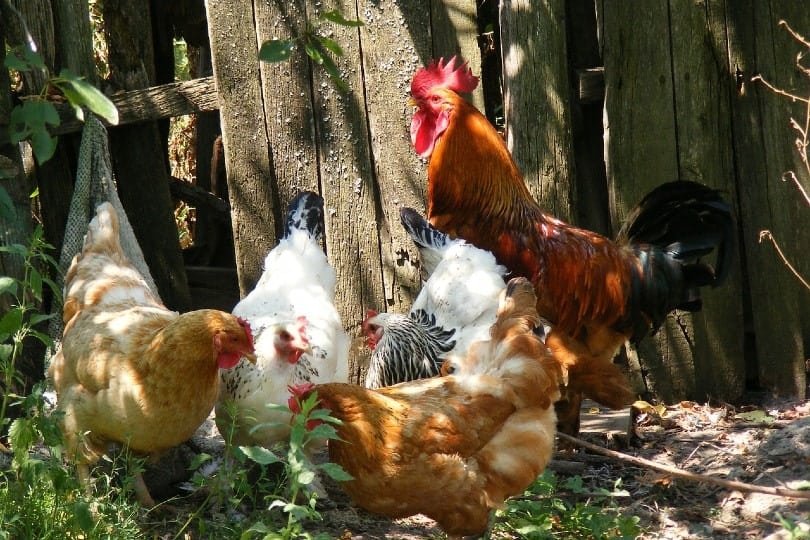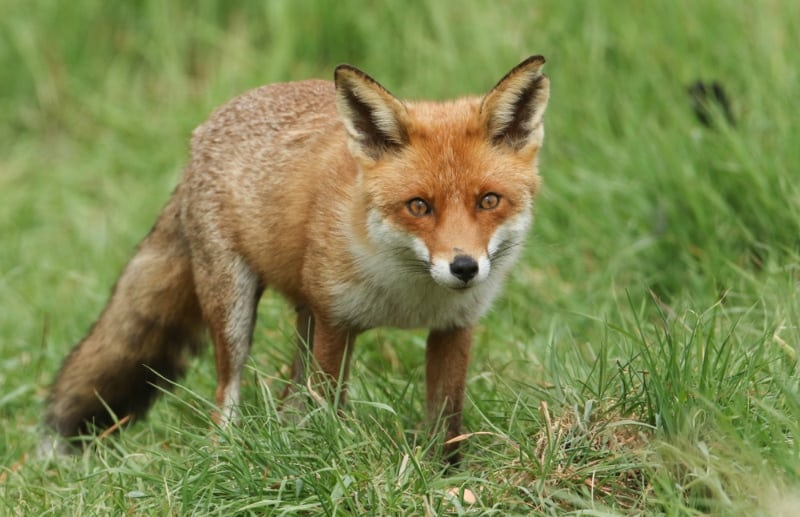Approved by Dr. Luqman Javed
The intelligent, sly fox is a feared predator among chicken keepers. Foxes are slick enough they can even leave little evidence of an attack. Some keepers will simply notice members of their flock go missing one by one. Occasionally, a fox may be more apparent in their attack and kill one or more chickens and leave them at the scene.
So why would a fox kill chickens and leave them? The answer is quite simple. Foxes are opportunistic hunters and if they come across a large supply of prey it is not uncommon for them to kill as much prey as possible with the intention of storing it for later.
Foxes will bury what food they cannot consume under leaves or within the snow (depending on the time of year) to ensure they have a meal for a later time. This behavior is often seen in other meat-eating mammals, such as leopards. The unfortunate chickens that are left behind from the attack were likely unable to be carried off and stored for one reason or another.

Fox Diet and Hunting Behavior
Foxes are facultative carnivores and opportunistic hunters that feed on a variety of prey. Foxes will prey on smaller animals such as rodents, rabbits, lizards, voles, birds, insects, and anything they can overpower. Foxes are notorious for rummaging through human trash in urban areas and have no trouble scavenging carcasses as well.
These savvy little opportunists will take what food they can get and store the rest.
Foxes usually hunt at night; however, being opportunistic, they may readily attack vulnerable chickens during the day as well.

How to Determine if a Fox Is Attacking Your Chickens
Most fox attacks on chickens will be difficult to identify. They aren’t known as sly foxes for nothing. They are fast, quiet, and very sneaky. Chances are, once they’ve homed in on a chicken coop; they will use it as their frequent prey source.
Foxes will stealthily stalk the chickens and hide before suddenly making their move. If they gain access to a flock, they will either immediately take off with a bird or kill several birds and then leave with one in their mouth. They will then store as many chickens as they can for eating later.
The fox’s intent is not to leave chicken bodies scattered across the coop; they fully intend to bring them along. They do not kill for fun or malice; this is simply their way of survival. If you have chickens disappearing in the middle of day or night without a trace, a fox may be the culprit.

The 4 Ways to Protect Chickens From Predators
Preventing predators like foxes from picking off your chickens can pose quite a challenge. Fox and many other predators are very intelligent and know that chickens make for easy prey. Free-range chickens are at the highest risk of being attacked by predators.
1. Secure Coop and Fencing
Securing your flock in a coop is the best method of protection. Foxes and other predators will study your coop for weaknesses and make attempts to get into the coop. You will want to ensure the sides of the coop are buried deep enough into the ground to prevent them from digging up into it.
Foxes are not able to climb well but will be capable of jumping over short fences. The coop should be composed of sturdy material and be relatively tall with a secure roof. Just because foxes cannot climb well does not mean other predators will not.
Regularly inspecting the coop and any fencing used to protect your chickens is very important. Any weak points will be taken advantage of and will put the chickens at a higher risk of being attacked.

2. Keep Your Flock Locked Up at Night
Make sure you lock your flock of chickens up into their secure coop every night to maximize their safety. Some convenient products on the market come with lights, sensors, locking mechanisms, and timers.
3. Consider Adding a Rooster
A rooster’s duty is to protect his flock of hens. Having a rooster around is like having an extra alarm system. If any danger is sensed, the rooster will raise an alarm and warn the rest of the flock, and if you’re close enough, you may hear him as well.
Roosters are undesirable in some circumstances, though.
- If you are rearing chickens for profit, the rooster is an additional animal you have to feed.
- Roosters crow, and this might contribute to noise pollution where you stay. In some areas, roosters aren’t allowed to be kept as backyard pets for this reason.
- Roosters may mate with hens and the eggs that your hens produce will be fertilized (this is usually not desired when chickens are reared for egg production).
- In mixed flocks, roosters will fight with other roosters and bully juvenile roosters to establish dominance over them.

4. Having Other Animals Nearby
Dogs and some barnyard animals can be a big deterrent for predators, especially foxes. Foxes have a keen sense of smell and will detect the presence of your dog. The smell alone may be a deterrent from approaching the chickens, but this will depend on how hungry the fox is.
Interestingly, llamas have been known to be great protectors of chickens, other barnyard fowl, or animals that can fall victim to foxes. They are very territorial and will not hesitate to chase off a pesky predator.

Conclusion
If you have a fox that is killing your chickens and leaving them, this is because the fox is an opportunistic hunter that will kill as much easy prey as possible, consume their fill, then store the rest for later by burying carcasses in a safe place.
If your chickens have been left dead near the coop, it is likely the fox was not able to carry all of them back to their storage location. It is unfortunate when our chickens fall victim to any predator, and that’s why it is so important to take the necessary steps to keep them secure and protected.
- Related Read: Do Foxes Attack Chickens in Daylight? Or Only at Night?
Featured Image Credit: Sandra Standbridge, Shutterstock
